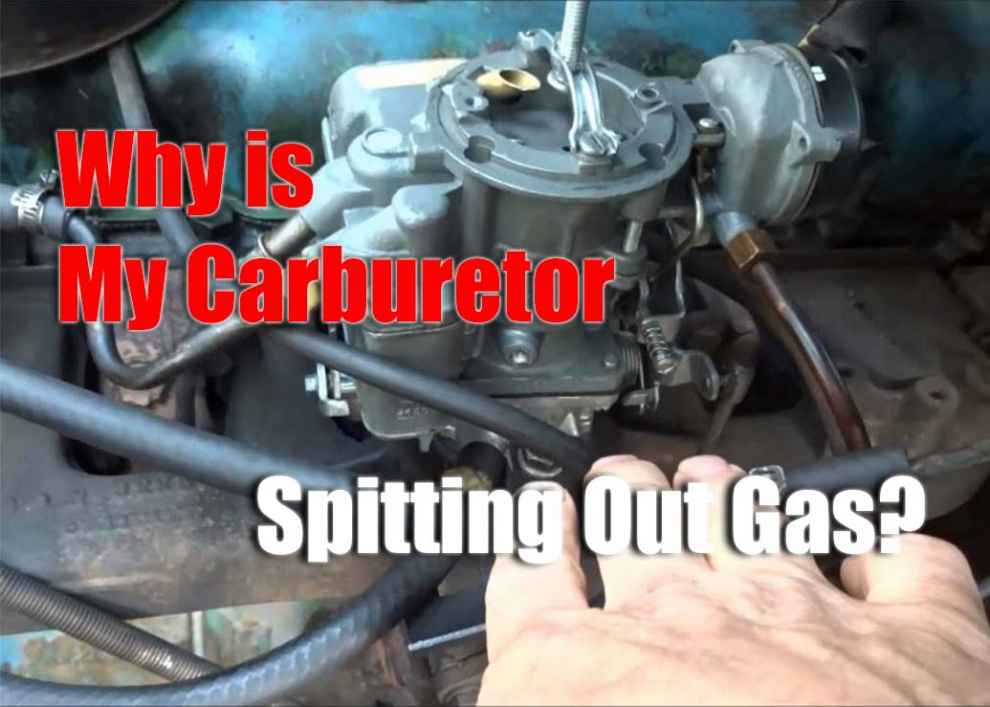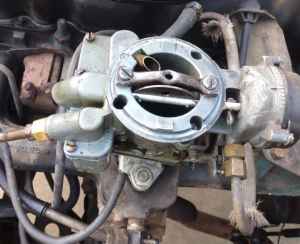If your vehicle’s carburetor is spitting out gas, this could indicate a number of potential problems with the engine. In order to properly diagnose and troubleshoot the issue, it’s important to understand what causes a carburetor to spit out gas. There are several different causes that can lead to this issue, including improperly adjusted float level, too much fuel pressure, damaged gaskets or seals, and vacuum leaks. Once you have a better understanding of what may be causing the carburetor spitting out gas problem, you can then move on to diagnosing and fixing it.
What Causes a Carburetor to Spit Out Gas?
-
Improperly Adjusted Float Level – The float level inside the carburetor helps regulate the fuel-air mixture going into your engine. If it isn’t set properly, this can cause too much fuel in the mix which will lead to a carburetor spitting out gas problem.
-
Too Much Fuel Pressure – Fuel pressure needs to be in balance for your engine’s performance and fuel economy; if there is too much pressure it can cause excessive amounts of gasoline entering the intake manifold which will result in spitting from the carburetor.
-
Damaged Gaskets or Seals – A faulty gasket or seal can cause fuel to leak from the carburetor and result in it spitting out gas.
-
Vacuum Leaks – A vacuum leak can upset the balance of air and fuel entering your engine and cause the carburetor to spit out gas.
How to Diagnose a Spitting Carburetor
-
Checking the Float Level – The first step in diagnosing a spitting carburetor is to check the float level inside and make sure it’s set properly according to your vehicle’s specifications. This can easily be done with a basic hand-held multimeter.
-
Inspecting Gaskets and Seals – If you suspect that a faulty gasket or seal is causing the problem, then you should inspect all of them for any signs of damage or wear-and-tear that may be allowing fuel to escape from the carburetor.
-
Examining Fuel Pressure – The next step is to check your engine’s fuel pressure levels and make sure they are not too high which could be causing too much gasoline entering into your intake manifold resulting in spitting from the carburetor.
-
Identifying Vacuum Leaks – If all else fails, you should check for vacuum leaks that may be causing the carburetor spitting out gas problem. This can be done by testing the intake manifold with a vacuum gauge and checking for any abnormal readings.
Conclusion
Carburetor spitting out gas problems can be caused by a number of different issues, including improper float level, too much fuel pressure, damaged gaskets or seals, and vacuum leaks. In order to properly diagnose and troubleshoot the issue, it’s important to check the float level inside the carburetor as well as inspect gaskets and seals for any signs of damage or wear-and-tear. Additionally, it’s vital to make sure that fuel pressure levels are not too high which could result in excessive amounts of gasoline entering your engine’s intake manifold. Finally, you should always check for potential vacuum leaks that could be causing an imbalance in air and fuel going into your engine resulting in carburetor spitting out gas problems. With these helpful tips on hand you’ll be able to quickly diagnose and fix any issues related to your carburetor spitting out gas.

 Improperly Adjusted Float Level – The float level inside the carburetor helps regulate the fuel-air mixture going into your engine. If it isn’t set properly, this can cause too much fuel in the mix which will lead to a carburetor spitting out gas problem.
Improperly Adjusted Float Level – The float level inside the carburetor helps regulate the fuel-air mixture going into your engine. If it isn’t set properly, this can cause too much fuel in the mix which will lead to a carburetor spitting out gas problem.
Add Comment